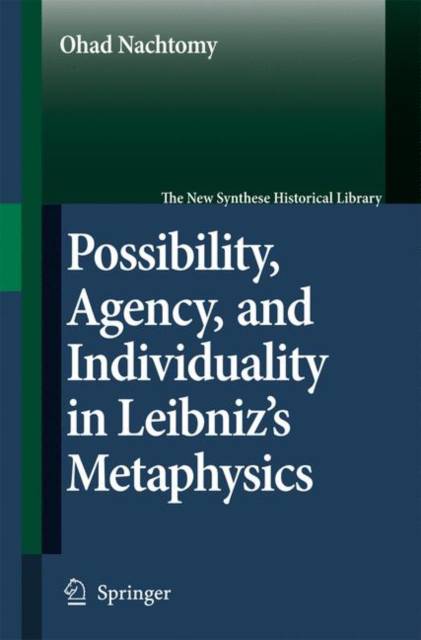
- Retrait gratuit dans votre magasin Club
- 7.000.000 titres dans notre catalogue
- Payer en toute sécurité
- Toujours un magasin près de chez vous
- Retrait gratuit dans votre magasin Club
- 7.000.0000 titres dans notre catalogue
- Payer en toute sécurité
- Toujours un magasin près de chez vous
Description
Leibniz's notion of possibility is one of his most significant contributions to philosophy as well as one of the cornerstones of his metaphysics. This work attempts to bring out the intrinsic subtlety of Leibniz's approach to possibility and to explore some of its important repercussions in his metaphysics. This project involves an examination of some of the most difficult questions in Leibniz's metaphysics from this vantage point. The book consists of three parts, the first focusing on Leibniz's notion of possibility, the second on his notion of agency, and the third on his notion of individuality. Leibniz's preoccupation with the notions of possibility, agency and individuality is evident in his early writings as well as in his later ones. His combinatorial insights regarding the notion of possibility as a model for creating the world, his commitment to the traditional doctrine that activity constitutes being, and his view that individuals are the only true beings are among the formative and persisting tenets of his metaphysics. This work explores these tenets in some detail and seeks to highlight the connections between them. The first part of the book presents Leibniz's approach to possibility by exposing his early presuppositions about the status and nature of possibilities (chapter 1); his notion of possible individuals (chapter 2); and his notion of possible worlds as constituted by the relations among possible individuals (chapters 3 and 4). The second part discusses the transition from possibility to actuality through the notion of agency.
Spécifications
Parties prenantes
- Auteur(s) :
- Editeur:
Contenu
- Nombre de pages :
- 272
- Langue:
- Anglais
- Collection :
- Tome:
- n° 61
Caractéristiques
- EAN:
- 9781402052446
- Date de parution :
- 24-05-07
- Format:
- Livre relié
- Format numérique:
- Genaaid
- Dimensions :
- 156 mm x 234 mm
- Poids :
- 576 g

Les avis
Nous publions uniquement les avis qui respectent les conditions requises. Consultez nos conditions pour les avis.






